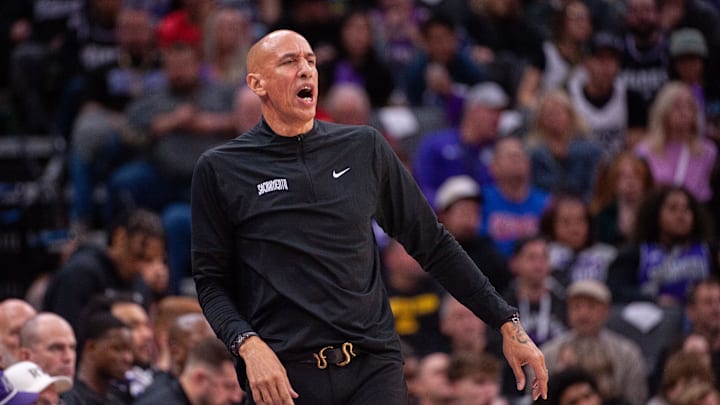The Sacramento Kings are scorching hot (winning nine of their last ten games), and now they think that they are capable of making a run in the loaded Western Conference. To do that, they will likely look to upgrade their roster with a trade prior to the 2025 NBA Trade Deadline (Thursday, February 6).
However, you can't just trade for any player you want. In the NBA, there is a salary cap and a collective bargaining agreement that teams must abide by and follow. And if the Kings plan on keeping themselves out of the first and second apron, they will need to keep these variables in mind when they are negotiating deals this trade deadline season.
How close are the Sacramento Kings to the first and second apron?
Before we begin with the Kings, we need to discuss the first and second apron. In the new CBA, the league introduced penalties that teams would incur if they went a certian amount over the league salary cap maximum.
This year, when a team spends roughly 37.5 million dollars over the salary cap maximum (about 140.6 million in 2024-25), they become a first apron team. That means they can't sign players on the buyout market if they were previously being paid more than the midlevel exception. They can't acquire a player through a sign-and-trade unless that player brings them below the first apron. They can't use their trade exceptions. Speaking of trades, they can't take in more salary than they send out.
As for the second apron, a team earns that designation when they spend at least 48.3 million dollars over the salary cap maximum this season. That means that not only do you have to trade as much salary out as you are taking in. You also can't aggregate salaries in trades that don't take your team out of the second apron.
When you're a second apron team, you can't trade first round picks that seven years into the future. Also, if you are in the second apron for two of four years, its first-round pick seven years out won’t just be frozen, it will automatically be moved to the end of that first round — or the 30th pick.
For theKings, they are currently a little over seven million dollars away from being a first apron team and 17.8 million dollars from being a second apron one (per Spotrac). So, when you are coming up with hypothetical trades, keep these two numbers in mind. Judging from the harsh consequences that come with being a first/second apron team, the Kings likely won't execute any trade that puts them in one of those places — unless it guarantees them title contender status.
